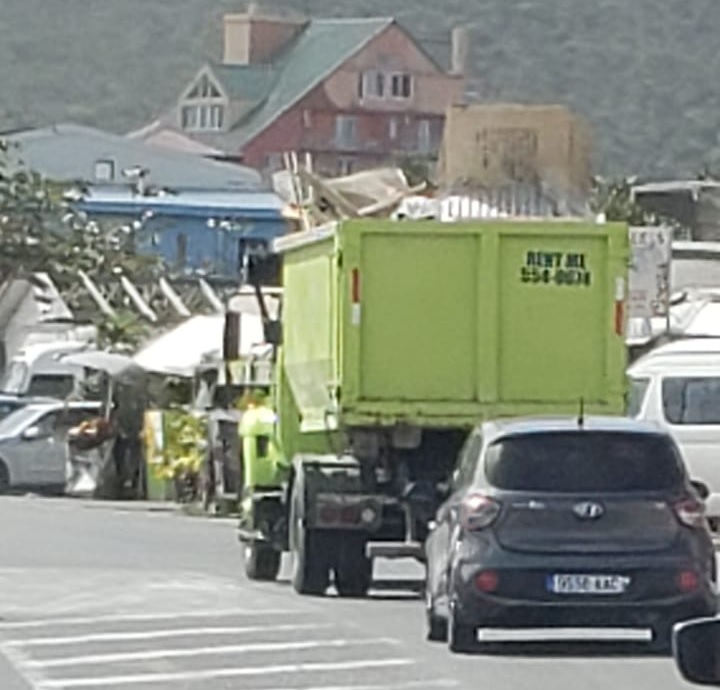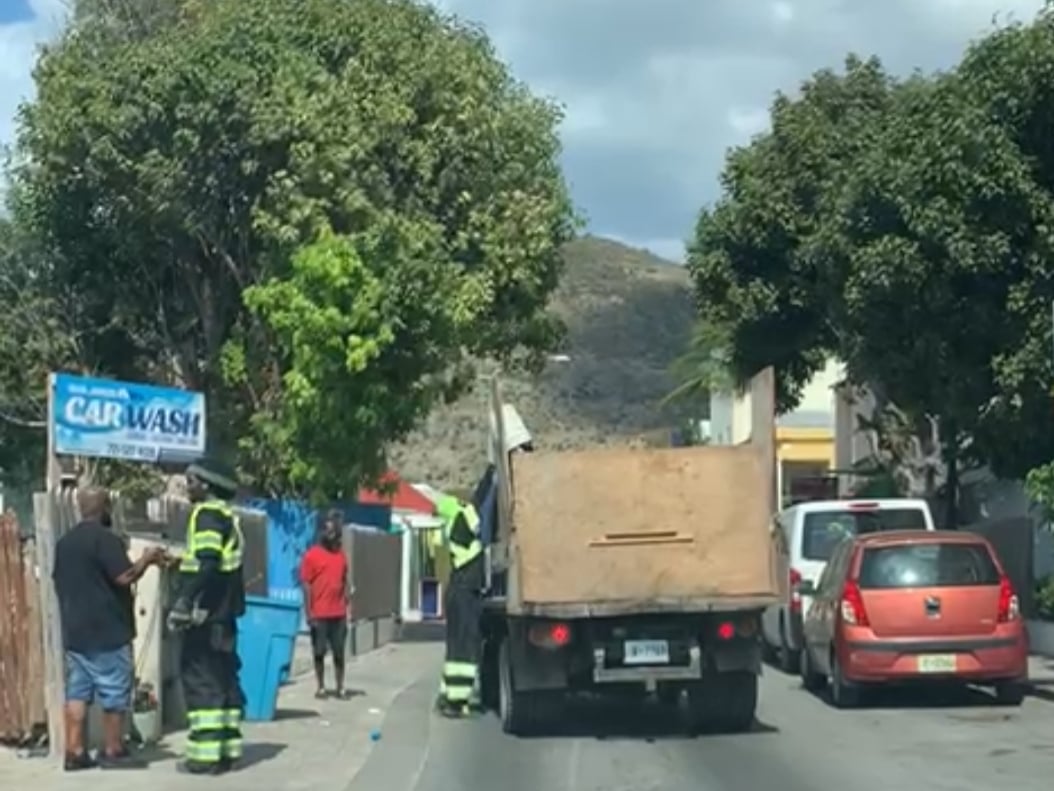Ombudsman: Garbage collection-tender was not fair and not transparent
PHILIPSBURG — The public tender for the collection of solid waste for the period 2021-2026 was “neither fair nor transparent,” the office of the Ombudsman concludes in a report about its systemic investigation into this issue.
VROMI-Minister Egbert Doran reacted tersely when he was given the preliminary report. He considered the investigation to be incomplete and its findings to be unbalanced because the report does not include “additional documentation the ministry has provided from the onset.” In a postscript Ombudsman Gwendolien Mossel retorts that “all documentation and relevant information provided by the ministry is included in the final report.” Mossel also dismisses the minister’s claim that certain elements of the report fall outside the scope of the investigation. “This in incorrect. It is the prerogative of my office to determine the scope of an investigation.”
That many things went wrong with the tender for solid waste collection became clear after Quality Sweepers and Maintenance and Vision General Works filed complaints about the process with the Ombudsman. Leonard Enterprises and All Waste in Place (AWiP) filed complaints with the VROMI-Minister and parliamentarian Tamara Leonard posed questions in parliament.
 These complaints were reason for the Ombudsman to initiate a systemic investigation. Already in the beginning of the report it becomes clear that something is not right in the field of garbage collection: “It is not unusual that the transparency, reliability and fairness is brought into question, not only by participating companies but also by members of parliament.”
These complaints were reason for the Ombudsman to initiate a systemic investigation. Already in the beginning of the report it becomes clear that something is not right in the field of garbage collection: “It is not unusual that the transparency, reliability and fairness is brought into question, not only by participating companies but also by members of parliament.”
Apparently, VROMI-Minister Doran had something to hide: “The information gathering process was frustrated by the refusal of the minister, in contravention of article 19 of the national ordinance Ombudsman, to provide critical information to the investigation.”
Of the 24 companies that submitted a bid, 15 were disqualified for not having submitted the required documents. Six of them were subjected to a second evaluation after which four of them were admitted to the bidding process. Three of these bidders had no previous experience with garbage collection.
The evaluation committee later included words like cleaning, maintenance and grounds in the terms of reference. As a result, companies that did not have the words garbage, solid waste, debris, cleaning and maintenance of grounds in the description of their business license were permanently disqualified from the process.
One of the victims of this exercise was Leonard Enterprises, a company that obtained its business license in November 2000 and that made garbage collection its core business in 2009. But waste management was not part of the description in its business license.
But was this the real reason for shoving Leonard enterprises to the side? Or did this have something to do with remarks Member of Parliament Tamara Leonard made on February 2018 during a Central Committee meeting. Without mentioning the name of the top civil servant who was at the time head of the infrastructure department at the VROMI-ministry, Leonard said: “Minister Giterson has to address the issue of the director of maintenance at the VROMI-department. If we allow this to continue for the sake of all kinds of kickbacks under the umbrella of smokescreens of saving money we have a problem. Everybody in this room knows the truth. We have to get rid of the king that reigns over garbage in this country.”
Four of the seven members of the evaluation committee resigned after they observed irregularities: cabinet members requesting the key of the room where the bidding documents were safely stored without having any other committee members present. That left the committee with three members: two cabinet members and the head of the department.

The Ombudsman found that the pricing element in the bidding process has a significant influence on the outcome of the process. Internally, the ministry sets a price for the work it puts on bid. Bidders can deviate upwards 3.5 percent and downwards 7 percent of that price. If their bid falls outside these parameters, they are disqualified. A good price awards a bidder 40 of the maximum of 100 points on the evaluation scale. “In 70 percent of the cases the contractors with the highest score on step 1 and 2 of the process, ultimately lost because they failed to secure points for pricing,” the Ombudsman-report states. “The contractors that came closest to the government price won the bid, regardless of the overall quality of their bid.”
Based on the terms of reference, contractors should have two garbage trucks available per parcel (the garbage collection is divided in seven districts, or parcels) and those trucks cannot be older than ten years at the beginning of the contract.
But six months after the beginning of the contract only AWiP had two trucks and the West Indies Landscaping Company (Wilco) had one. Garden Boyz also had one truck, but it was older than ten years and Avyanna had no trucks at all. Meadowlands had indicated that it has seven trucks and that two new trucks would arrive on time, but six months later it appeared that the company had zero trucks. Renting trucks, as these contractors did, is only allowed for short periods of time in case of equipment failure.

The Ombudsman found major deficiencies in the terms of reference. One of them is that it excludes companies with verifiable experience in garbage collection (like Leonard Enterprises), while finding contentious ways to include companies without that experience. “That is not reasonable or proportionate,” the report states.
The investigators furthermore found that requirements are ignored by contractors and not enforced by the ministry. This refers to the age limit for garbage trucks, having two trucks per parcel, the prohibition of subcontracting and the provision of uniforms, hard hats, and safety equipment like glasses, vests and shoes.
“Even when it became clear that some contractors could not live up to the terms of reference, this was ignored by the ministry,” the report states. “The end result is that the bidding process was mismanaged, resulting in poor execution of the works.”
The Ombudsman now recommends that the ministry creates a comprehensive tender procurement policy and to anchor it in a national decree containing general measures (Lbham). The ministry also ought to prepare the tender and the terms of reference in a timely manner, create a public tender evaluation report and put together a comprehensive waste management plan.
###
Related links:
Download the Ombudsman report on the waste tender process here>>>
Ombudsman starts systemic investigation into collection of solid waste tender 2021-2026
Ministry recruits waste-management advisors
Quality Sweepers questions result solid waste tender
Solid Waste Collection Contracts “2021-2026” Awarded to Successful bidders
Emmanuel: Govt liable for unhygienic and unsafe garbage collection methods
RECKLESS AND IRRESPONSIBLE TRANSPORTATION OF GARBAGE























